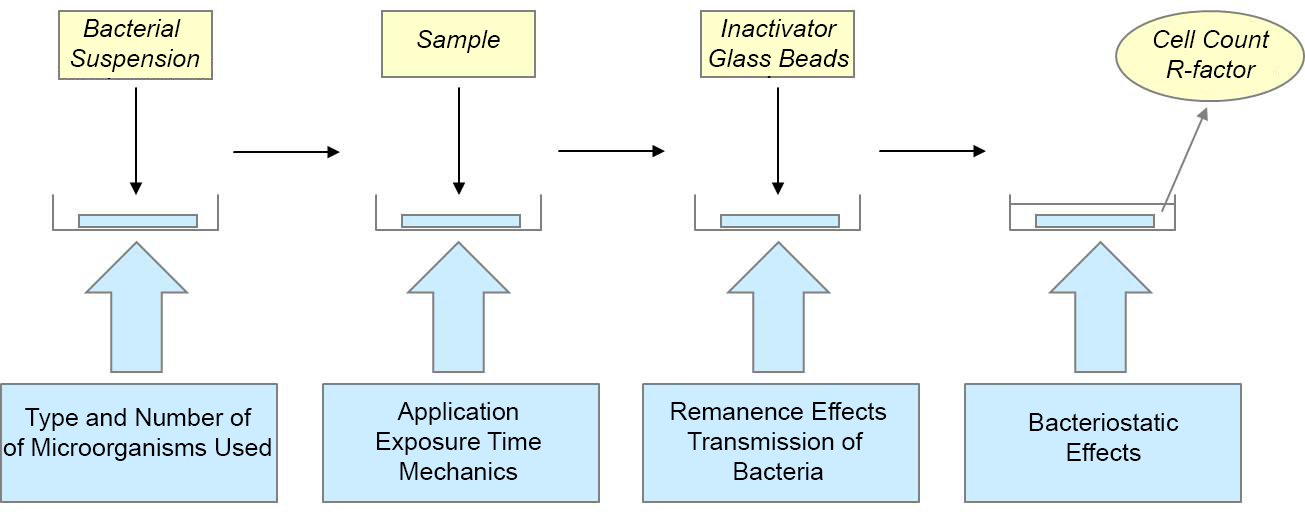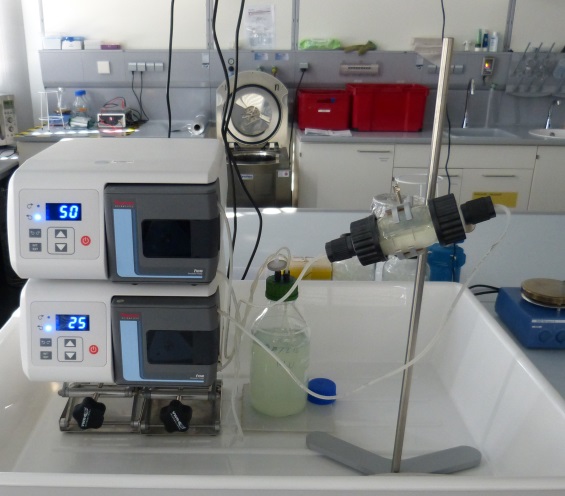Efficacy Testing
The effectiveness of biocides in disinfectants and antimicrobial cleaning products is generally tested according to a standardised approach. In this case, a biocide’s antimicrobial performance is tested against surrogate bacteria, which is used to represent a corresponding group of microorganisms, e.g. gram-positive bacteria, gram-negative bacteria, mould and mildew, or yeast.

Testing on surrogate bacteria offers, however, no guarantee that the biocides in question are actually effective against the microorganisms that actually occur in everyday situations and locations. What’s more, the testing standards are based on clinical environments and thus test more according to the requirements of a hospital than the common household. This stands in sharp contrast to the fact that most food-related infections and intoxications are found in the home, as well as the growing importance of household cleaning measures and household hygiene in general.

Furthermore, by limiting testing to specific antimicrobial substances within the scope of the European Biocide Product Directive (BPD), future product innovations in disinfectants and antimicrobial detergents and cleaning agents will rarely come about through the identification of new chemical substances, but rather through the use of innovative new efficacy tests.
